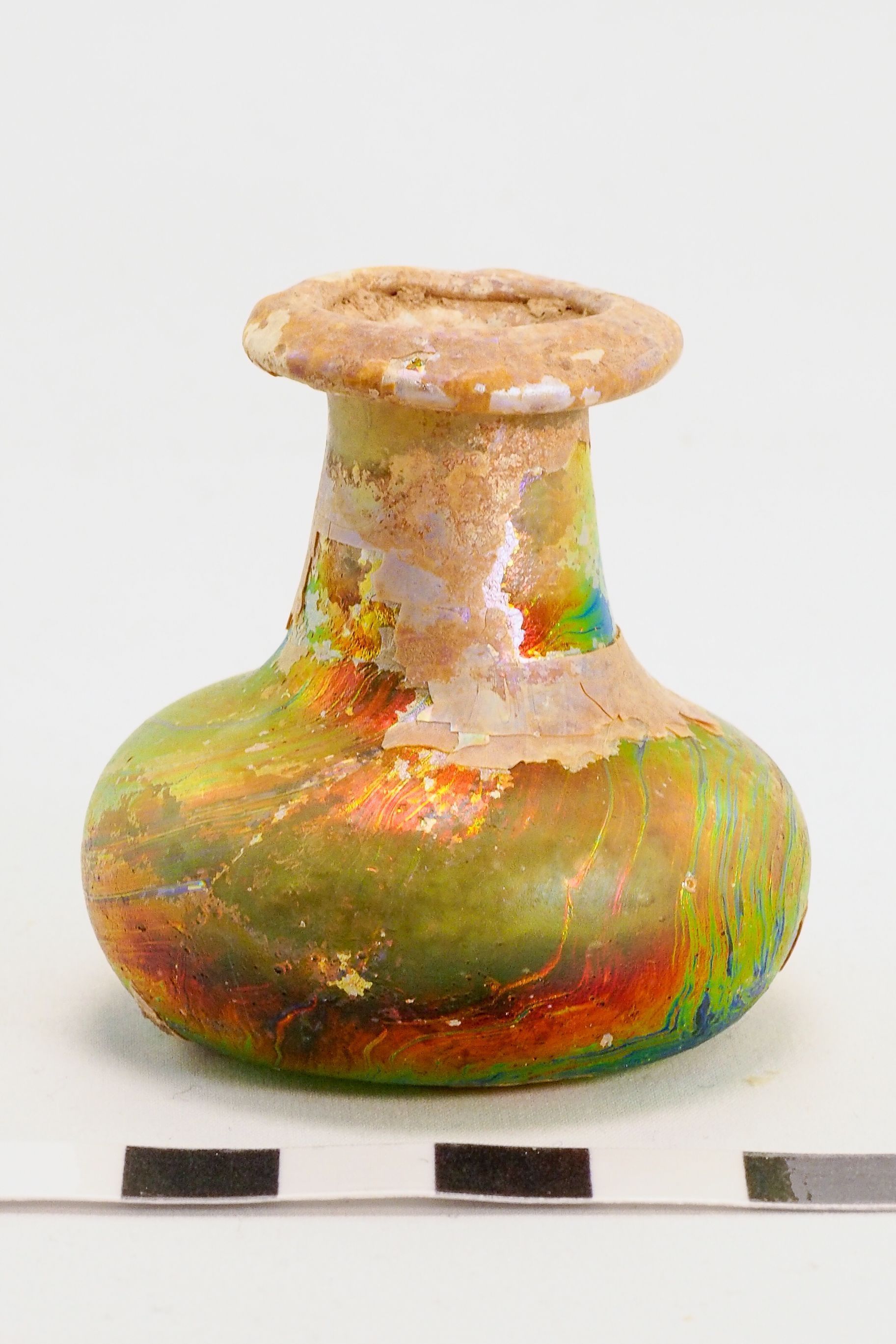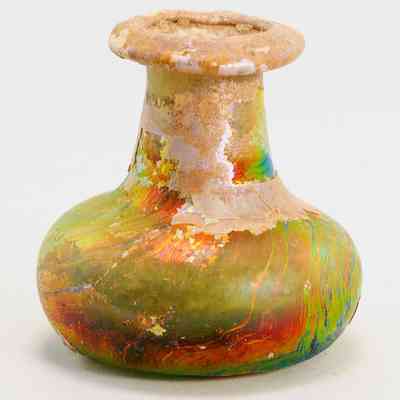Dropper Bottle
Name/Title
Dropper BottleEntry/Object ID
11NE-Mi10-148Description
The irregular rim it is everted, then folded up and out creating a lip. The neck is tubular, widening slightly at the junction with the squat bulbous body. The base is flat with a pontil mark. The vessel is intact with iridescence and trace encrustation.Use
Tear VialContext
This flask resembles Roman flasks which were used as tear vials in ancient funerary practices. In ancient Rome, mourners would collect their tears in glass vials then throw them onto the funeral pyre. In the Syro-Palestine region, some believe the vials were used to collect the tears of mourners, which then were placed into the grave of the deceased. However, some scholars contest this categorization of "tear vial" or "lachrymatory" and prefer the term "unguent bottle" or "unguentarium" as more recently these vessels have been identified as containers for oils or unguents, having been found with remnants of oils. Additionally, in the nineteenth and early twentieth centuries, stories of lachrymatories in ancient funerary rituals were dramatized, particularly by the Victorians who revived Shakespearean tales of the ancient world which romanticized the use of lachrymatories. Although the term is contested, there is literary evidence to support the ritual use of lachrymatories in Pseudo-Philo’s Biblical Antiquities which was written in the first or second centuries CE; the passage recounts a mother in the Near East leaving a vial of her tears in the tomb of her young child.Made/Created
Date made
1 CE - 100 CETime Period
Roman ImperialEthnography
Culture/Tribe
Near Eastern - Syro-Palestine

